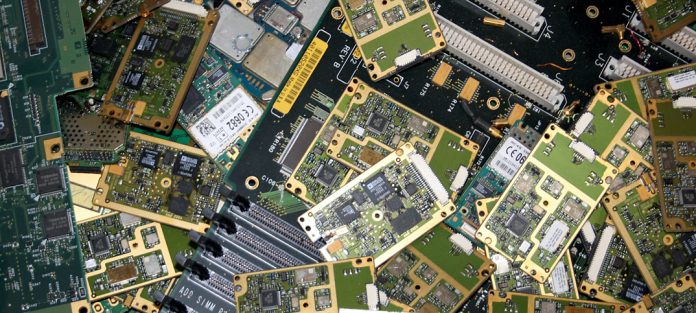Most companies in the electronics recycling industry are optimistic about future economic development, according to a recent survey of participants at the International Electronics Recycling Congress IERC 2020. The survey shows that around 45 per cent expect economic conditions for the electronics recycling industry to improve over the next two years. Just under a third of those surveyed expect business conditions to remain stable, while around 24 per cent expect business to deteriorate.
The results are even clearer when it comes to predicting future volume developments:
- Two thirds of those surveyed predict that scrap volumes will increase over the next two years
- Another 25 per cent expect stable development
- Only 8 per cent of attendees think that market volumes are likely to decrease
The basis for this synopsis of opinion is a survey organised by the IERC Steering Committee among participants at the annual IERC industry meeting. The results are summarised in the „Industry Barometer IERC 2020“ for the electronics recycling sector, which has been published for the first time at this year’s congress in Salzburg. Although the results are not representative, they do meaningfully reflect a consensus of opinion across the sector.
In the survey, congress participants were asked to assess the current and future business situation from both a monetary and a quantitative point of view. As the results show, the assessment of the current economic business situation is similar to the assessment of future development:
- Around 39 per cent of those surveyed described the current economic situation as favourable
- A good 35 per cent assess today’s conditions as unchanged compared with the last two years
- Around 26 per cent of attendees are dissatisfied with current business performance
The assessment of current volume development also shows a parallel to the future volume development:
- Around 63 per cent of survey participants described current volume development as positive
- A further 27 per cent see market quantities as unchanged compared with the last two years
- Only 10 per cent of the attendees surveyed described current volume trends as negative
When asked about the factors influencing business development, the participants refer, among other things, to increased sorting costs due to the poorer quality of e-waste. This not only increases the demand for better processing technologies, but also makes the disposal of sorting residues more difficult and possibly more expensive. Moreover, the survey participants point to export restrictions, especially to Asian countries. Plastic waste, which is of poorer quality, is particularly affected. It is becoming increasingly difficult to find a market for these plastic wastes.
One aspect that continues to occupy the industry is the increasingly strict legal requirements and the varying legal framework conditions in individual countries. On the other hand, the recyclers also expect fresh impulses from new projects to strengthen the circular economy. Among other things, they mention binding use quotas for recyclates in new products, as well as the use of recyclable materials and the simpler removal of components. The e-waste recyclers also welcome the planned restriction on landfill.
„All in all, this survey shows that, most Stakeholders have a positive outlook for the e-waste recycling business sector, outlook which I share.” said Stephane Burban, Chairman of the Lecture Group of the Steering Committee of the IERC, summarising the results of this first Industry Barometer IERC 2020. “However, some challenges lie ahead and it is becoming ever more apparent that consultation through an open and constructive dialogue between Stakeholders (OEMs, Recyclers and Legislators) needs to be nurtured”
Source: ICM AG






